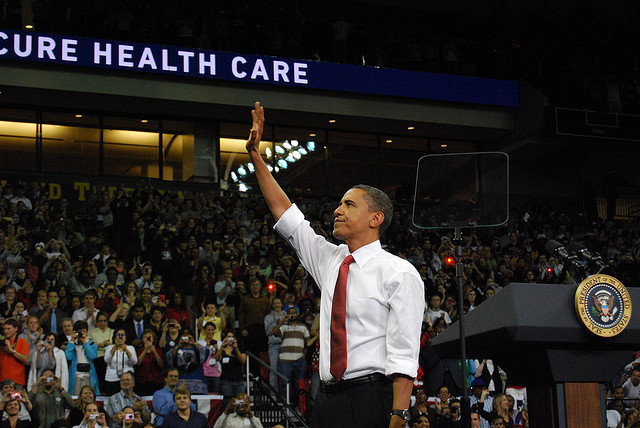
As the Republican presidential candidates fight to distinguish their healthcare records, and as the public awaits a Supreme Court decision on President Obama’s health reform, health insurance has never felt quite so contentious or urgent an issue. Princeton sociologist and former Clinton health policy advisor Paul Starr visits Zócalo to discuss whether our healthcare wars will ever come to an end. The following is an excerpt from the introduction to Starr’s new book, Remedy and Reaction: The Peculiar American Struggle over Health Care Reform.
Among the rich nations of the world, the United States stands out for the virulence of its political battles over healthcare. Unlike the other capitalist democracies, America has left a large population without insurance coverage-as of 2010, about 50 million people at any one time. The United States also spends far more on healthcare than other countries do-17.6 percent of its gross domestic product compared with an average of about 9 percent in the other economically advanced societies. For four decades, these differences have been growing. In 1970, when the uninsured were a considerably smaller fraction of the population, healthcare costs in the United States were much closer to the levels in western Europe and Canada. Under President Richard Nixon, the United States also came close to enacting on a bipartisan basis a comprehensive health-insurance plan for its citizens. Since that time, however, the underlying problems of health coverage and costs have become more severe, and the attempts to remedy them have generated more rancorous partisan divisions. In no other advanced country does public responsibility for health costs provoke such deep and bitter conflict.

The ideological warfare over healthcare in American politics has its antecedents in the battles over health insurance in the first half of the 20th century. It was in those years that the United States diverged from the more common path in western democracies, failing to establish a general system for financing healthcare. And when America finally adopted critical tax and health-financing policies in the two decades after World War II, it ensnared itself in a policy trap, devising an increasingly costly and complicated system that has satisfied enough of the public and so enriched the healthcare industry as to make change extraordinarily difficult.
Escaping from that policy trap has become a politically treacherous national imperative. Hoping to make it less treacherous-to attract support in the center and to avoid arousing the opposition of the protected public or the healthcare industry-recent Democratic plans and legislation have called for the expansion of private insurance, once the core element of Republican proposals. The most ambitious of the Democratic efforts, the plan proposed by President Bill Clinton, came to grief in 1994 without the adoption of any legislation. But the supporters of healthcare reform believed that they had finally reached their goals in March 2010, when Congress passed the Patient Protection and Affordable Care Act. Savoring the achievement, President Barack Obama and Democratic congressional leaders compared the law to such historic landmarks as Social Security, civil rights legislation, and Medicare.
It remains to be seen whether those comparisons will prove to be apt. Despite the exhilaration its supporters experienced in the moment, the passage of reform was an uneasy victory-uneasy because it was the victory of one party over a united opposition that threatened to repeal the legislation the first moment it had a chance; uneasy because many of those voting in favor had been obliged to accept compromises that they believed might jeopardize the program’s success; uneasy because public opinion at the time was sharply divided; uneasy because Democrats had already suffered an unexpected reverse in an election in Massachusetts in January and were worried (for good reason) about more losses in the fall.
The law’s passage was also an uneasy victory because its implementation was left in large measure to governors and state legislatures-some of whom fervently opposed the law and would challenge its constitutionality in court-and because no one could be certain the law would withstand all the attacks on it and lead to a stable and popular outcome. Even some of the strongest advocates of reform (and I am one of them) worried that the United States had become so entangled in the knot of problems it had woven in healthcare finance that any politically achievable response was bound to be imperfect and to be condemned for its limitations.
Political leadership requires different sorts of courage. Sometimes it is the physical courage to face down a hostile mob-and Democratic members of the House of Representatives had to show that fortitude as they walked to the decisive vote on March 21 through right-wing protesters who spat on them. Sometimes it is the courage to put a political career at risk for the sake of deeply held principles; many legislators had to do that as well. And sometimes it is the courage to make a decision when the choices are less than ideal and the prospects for success are uncertain. All those who voted for reform had to make that leap too.
Buy Remedy and Reaction: Amazon, Skylight, Powell’s
*Photo courtesy of borman818.




Send A Letter To the Editors